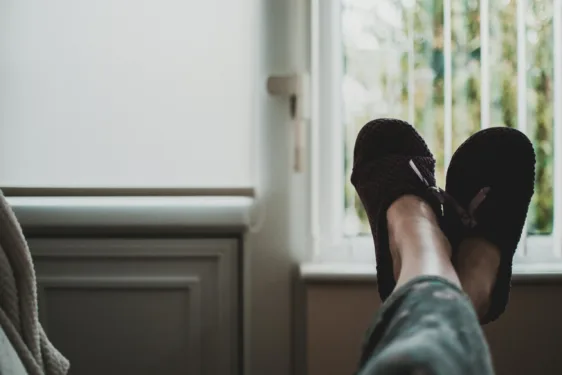
There’s a notion that we are lagging in some way if we are not continuously doing, creating, repairing, or accomplishing anything. What if I told you that some of the most crucial growth, healing, and strength development occurs when we pause? That’s the definition of recovery. Moreover, it’s far more than just calling in sick or napping after pushing yourself too hard. After a demanding season, recovery is the deep exhalation. It’s the simple choice to set down your phone and be still. It’s paying attention to your body when it says, “I need a break,” rather than waiting until it yells.
Rest cannot be ignored when we discuss health, whether it be managing chronic illnesses like hypertension or diabetes, coping with burnout, or just attempting to perform better in life. Even the healthiest behaviors lose their effectiveness without recuperation, so consider it. You might follow your medication regimen, adhere to an exercise schedule, and consume the healthiest foods, but how sustainable is that if you are mentally, emotionally, and physically depleted?
Rest restores. It reestablishes balance in your nervous system. It allows your organs to reboot. It helps to balance your blood sugar levels. It enhances your blood pressure. It calms your emotions, clears your mind, and boosts your immune system. Rest sustains your life. The problem is that rest doesn’t always equate to sleep. Sometimes recovery means being able to say no without feeling bad. Sometimes it’s permitting yourself to weep after having suppressed it. Sometimes it involves reminding yourself that you are more than your to-do list, getting sun, and going outside. Sometimes, it’s just doing nothing and being fine with it.

And let’s also discuss emotional recovery, particularly for those who are experiencing health anxieties, diagnoses, or the ongoing difficulties of chronic illness. Could you give your thoughts some room to catch up? To mourn what has changed. To honor what’s still feasible. Recovery is a component of healing rather than something isolated from it. The same holds for caregivers. Those who bear the burden of others. If that’s you, please listen: your rest is important too. You can’t pour from an empty cup, and it isn’t feasible to constantly strive to be “strong.” You merit gentle landings. You shouldn’t just be the caretaker; you should be cared for.
What does recovery look like for you right now? Not someday, but today.
Perhaps it’s a stillness before the rest of the world wakes up. It could be a book and a cup of tea instead of another chore. Possibly it’s reaching out to a buddy to hear someone speak who doesn’t want anything from you. It could be concluded that rest is the most effective thing you can do today. The fact is that recovery is not a sign of weakness. It’s knowledge. It’s what enables you to not only regain functionality but also flourish.
Therefore, allow yourself to take a breathing break so your body may catch up and your mind can rest. You’re not a robot; you are a human being, and you have every right to be well.
Post Disclaimer
Utilizing my own personal experiences as well as my background as a Registered Nurse, I share my enthusiasm for travel and health on this blog. Though I love what I do and sometimes talk about tactics for modest health improvement, keep in mind that the material provided might not be exact. The material herein is just for self-improvement. The content shared draws on my own experiences, thoughts, and stories. With this in mind, readers should consult their healthcare providers about any concerns they may experience.
Since each person has a different health path, what helps one person may not help another. Readers should consult their personal healthcare providers for personalized guidance based on their individual needs and circumstances. Rather than replacing the professional, my goal here is to inspire, enlighten, and start conversations that improve and make life more fulfilling relations between you and your medical staff.